Good morning, everyone! From this day forward, all blog entries will be posted on my website. I will leave this site up to function as an archive, but there will no longer be any new content posted here. I hope to see you all over on the new site!
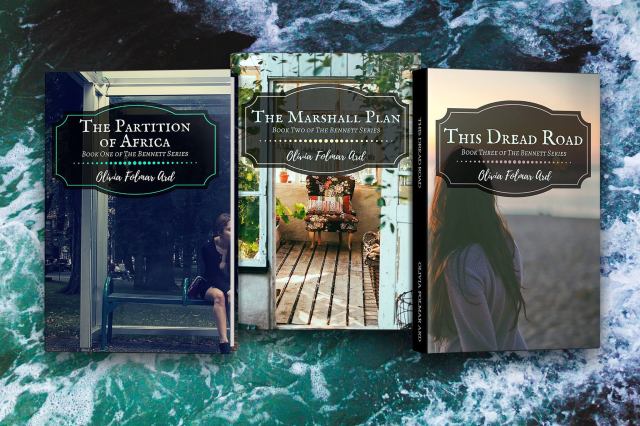

Good morning, everyone! From this day forward, all blog entries will be posted on my website. I will leave this site up to function as an archive, but there will no longer be any new content posted here. I hope to see you all over on the new site!

Since This Dread Road is in edits right now, I’m taking a bit of a breather before launching full-speed into my next writing project. I’m using this time to read as much as I can, for what better way is there to rejuvenate after a long, grueling seven months than pausing to “fill up” on creativity?
Unfortunately, I didn’t love everything I read during the month of May, but I did have good luck. Out of fifteen books read, I gave ten four- or five-star reviews. If you’re looking for something read this month, I recommend these!
I have dreamed of successfully completing at least one NaNoWriMo competition since 2011, and this past year I finally realized that dream. I wrote 50,014 words of This Dread Road, Book Three of The Bennett Series, in November 2015.
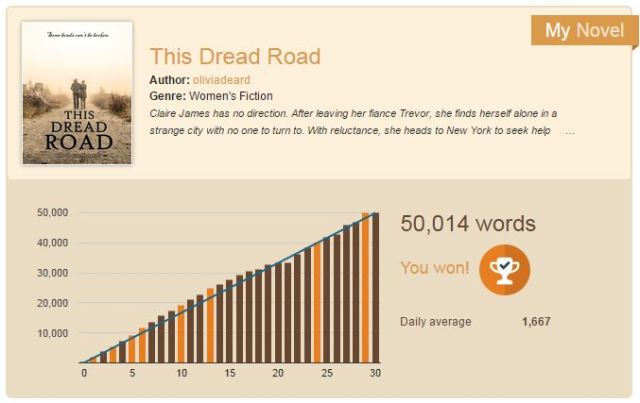
I was so proud of myself. Not only had I finally managed to complete a challenge, I did it in the same month my husband and I purchased a home and moved.
For several months after I finished, I was convinced that participating in NaNo was a great thing that everyone should do. After all, I’d never managed to write so much so quickly in my life. But now that I’m finished with revisions, I can look back and say with all manner of certainty that NaNoWrioMo, while well-intentioned, did me far more harm than good.
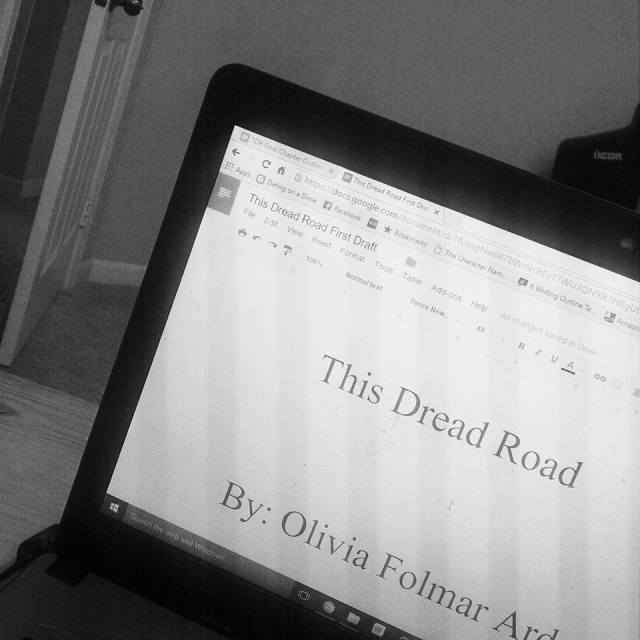
For one thing, it ushered in a horrific period of burnout. I never stopped working on This Dread Road, but it took nearly six months for me to finish the second half of the book. I went through several weeks of just not caring about the story anymore. Working on it was painful and torturous. For a while, I worried I wouldn’t finish it in time. Or at all.

Our trip to South Carolina in March forced me to rest and rejuvenate. I came home more excited about the story than ever, having seen places like Stella Maris Church (pictured above) that were connected to the story of This Dread Road. It took another month after our return, but I finally finished the draft. I was so happy to finish, and still eternally gratefully for NaNoWriMo. If I hadn’t written that 50,014 words last November, how much further behind schedule would I be?
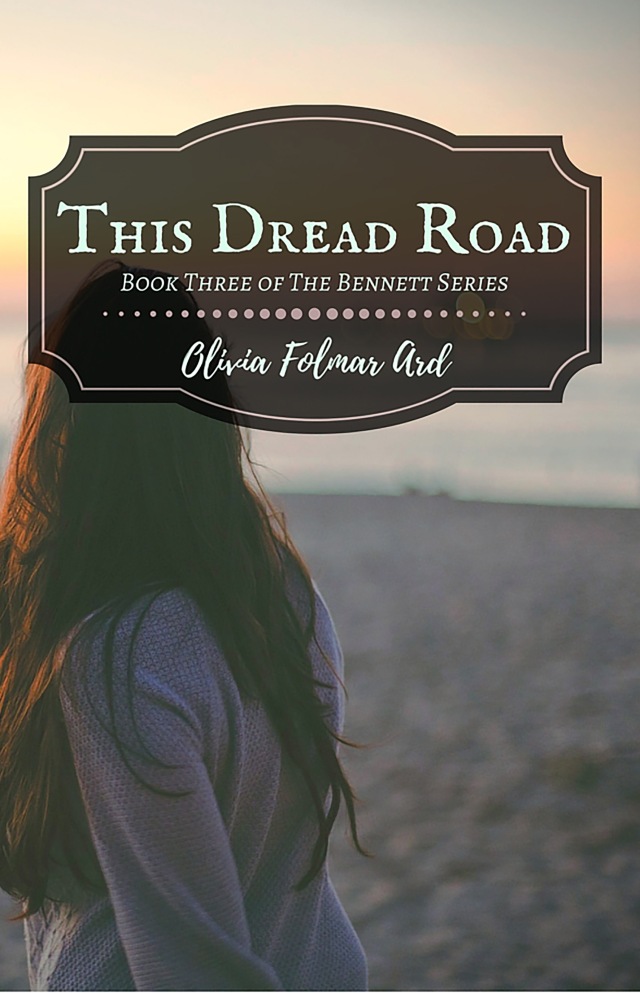
But when I started revisions a few weeks ago, I realized that those first 50,000 words were essentially useless. That section of the book was packed with filler words, unnecessary characters, and subplots I hadn’t taken the time to flesh out. I could almost map my exhaustion during the month of November just looking at that first half.
I had to rewrite the first twenty-seven chapters.
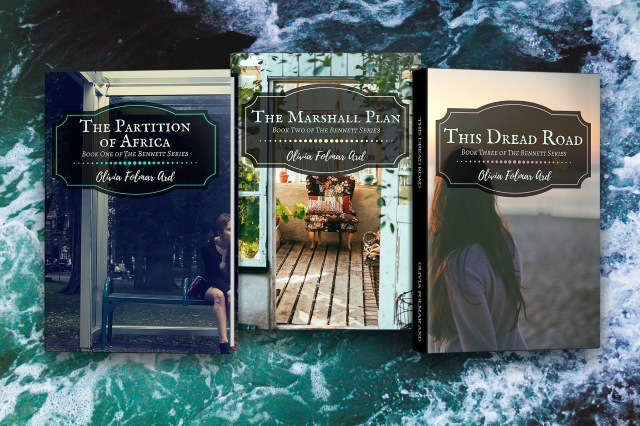
I don’t wish that I hadn’t participated in NaNo last year–it was a fun experience, and I enjoyed the camaraderie and solidarity that I experienced all across the Internet. It was finals week, but without the stress of grades hanging over my head. I got a lot done. Had I not participated, I most likely wouldn’t have taken a break to redesign all three of the covers for The Bennett Series. I wouldn’t have been able to let my experience in Charleston influence my descriptions nearly as much.
Most importantly, I wouldn’t have learned a valuable lesson: what works for others does not necessarily work for me.
This Dread Road is currently in the editing stage and is tentatively scheduled for a December 2016 release. I will hopefully have a firm date for you soon!
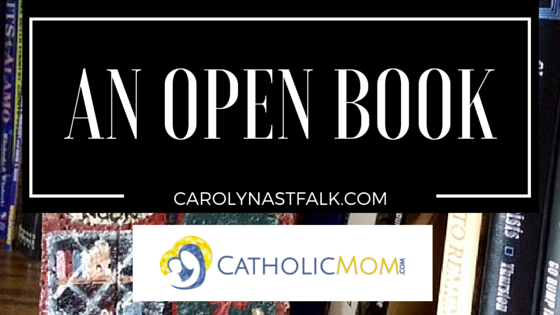
Thanks to Carolyn Astfalk and CatholicMom.com for hosting!
Holy cow, I haven’t posted here since last month’s version of An Open Book! I had no idea how much I’d been slacking lately. Last month passed in a blur with exams, essays, and portfolios, and I’ve been pouring ever spare second since into finishing up revisions on This Dread Road and updating the covers for all of The Bennett Series books. (Don’t worry, I’ll post on that soon!)
I have been getting a lot of reading done, though. It might seem a bit odd to spend time reading when there’s so much writing to be done, but I consider it research. I’m constantly finding new ways to improve, and what better way than to study what others in my genre are doing?
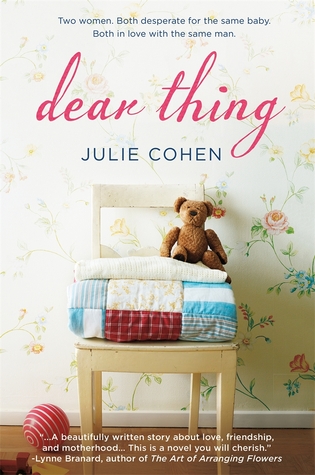
As always, I have a couple of irons in the fire. From my Netgalley list (which is about as conquerable as a hydra right now, to be honest), I’m reading Dear Thing by Julie Cohen. Ben and Claire have struggled for years to conceive a baby. After yet another failed embryonic transfer, Claire decides she’s done with treatment, but Ben’s not ready to give up so easily. When his best friend Romily finds out, she makes what seems like a reasonable offer: she will carry their child for them. Well, Ben’s child. Claire’s not able to produce a viable egg. Romily’s convinced that being a surrogate will be easy enough–she’s a single mom already, and she doesn’t want any more children. But as the pregnancy progresses, things get a little . . . complicated.
I’m about halfway through this book as of this morning and I’m enjoying it. The writing is superb, the characters are well-developed, and it’s provoking a lot of internal dialogue and debate about medical ethics. I have a strong feeling this will receive a five-star rating from me.
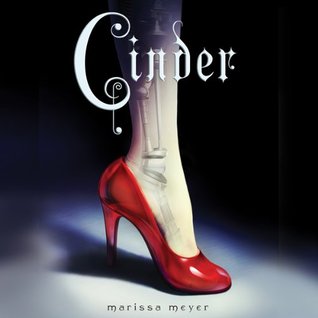
On the audiobook front, I’m listening to Cinder by Marissa Meyer. I haven’t finished listening to Harry Potter yet, but I won’t have the credit to download Harry Potter and the Deathly Hallows until next week, so here we are! I think The Lunar Chronicles will be my next audio project. I loved reading these books, and I love listening to them too. Rebecca Soler is a fantastic narrator.
I’m going to spend this month (and the next, and probably the next) slowly whittling away at my entirely too long NetGalley queue, in addition to a few titles I own but haven’t gotten around to reading. What I hope to read in June:
Dreaming of Antigone by Robin Bridges
Undecided by Julianna Keyes
Lucky Me by Saba Kapur
Don’t Tell, Don’t Tell, Don’t Tell by Liane Shaw
A Fierce and Subtle Poison by Samantha Mabry
Practical Applications for Multiverse Theory by Noa Gavin and Nick Scott
A Thousand Salt Kisses by Josie Demuth
Anything You Want by Geoff Herbach
Whisper to Me by Nick Lake
The Star-Touched Queen by Roshani Chokshi
Summer of Sloane by Erin L. Schneider
The Unexpected Everything by Morgan Matson
Lady Susan by Jane Austen
Seize the Flame by Lynda Cox
The Martian by Andy Weir
Fifteen books seems like a tall order, but I managed to read 8 last month without even really trying, so hopefully I’ll get through this bunch!
Would you like to participate in An Open Book and share what are you reading?
The rules are simple:

Thanks to Carolyn Astfalk for starting off the #OpenBook link up this month. (Visit her original post here.) Now, let’s get started!
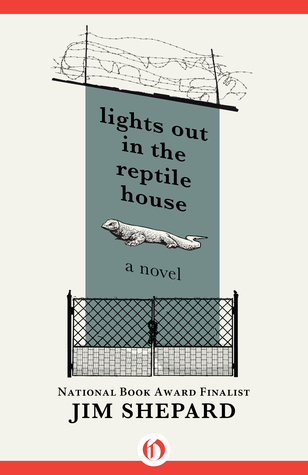
Over the past week or so, I’ve been working on Lights Out in the Reptile House by Jim Shepard. I received a free electronic copy of this book from Netgalley in exchange for a review. The description there said that it was released last year, but I realized after starting the book that the original edition was published in 1990.
Lights Out in the Reptile House is a literary fiction coming of age tale set in an unnamed dystopian country in an undisclosed location. While the police state government pervades the background of 15-year-old Karel Roeder’s life, the story focuses more on the birth of his political awareness.
To be honest, it’s looking like it will get a two or three-star review from me at this point (I’m about 90% finished). The writing is excellent on a technical level, but the characters are very wooden and I’ve had a hard time connecting with them. Conversations are mostly summarized instead of written out, and while that is a valid technique, I don’t care for it as a reader. I feel like I’m watching a movie in a foreign language with the simplest of subtitles. I also dislike dystopian novels in which the government system is largely ignored and unexplained; that seems to defeat the purpose of writing a dystopian work. But we’ll see–maybe the end will turn everything around for me.
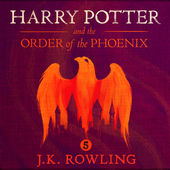
I am also revisiting the Harry Potter books via audio. I’m currently on Harry Potter and the Order of the Phoenix, which is one of my least favorites in the series. It’s a nigredo-stage book, which in literary alchemy means the protagonist is going through a stage of dissolution. Harry has several horrible things happen to him right as he hits a stage of natural teenage gloominess and moody despair. It’s incredibly frustrating and heartbreaking to listen to. I can’t wait until it’s time to move on to Half-Blood Prince.
This is only the second “reading” I’ve done with the series, as I wasn’t formally introduced to the wizarding world until 2014, and I’m loving the opportunity to explore the intricacy of J.K. Rowling’s planning. I was aware of it beforehand, obviously, as it’s been the source of many an academic paper and literary discussion, and I noticed a lot of the foreshadowing as I made my way through the books the first time, but it’s interesting to see how even the tiniest details all point toward the end. If you haven’t listened to the audiobooks, you’re missing out on a treat. Jim Dale’s narration voice is a treasure.
I’m going to spend this month (and the next, and probably the next) slowly whittling away at my entirely too long NetGalley queue. What I hope to read in May:
Every Anxious Wave by Mo Daviau
13 Ways of Looking at a Fat Girl by Mona Awad
Carry On by Rainbow Rowell
Regrets Only by M.J. Pullen
A Stolen Kiss by Kelsey Keating
Dear Emma by Katie Heaney
The Syndicate by Sophie Davis
The Tried and True Tales of Phineas Ichabod Rate by McKenzie Ruth
Cold Calling by Russell Mardell
Fair Play by Tracy A. Ward
Dear Thing by Julie Cohen
Dreaming of Antigone by Robin Bridges
Undecided by Julianna Keyes
Lucky Me by Saba Kapur
Don’t Tell, Don’t Tell, Don’t Tell by Liane Shaw
Fifteen books in one month might seem a little ambitious, but since I’ll be dropping the responsibilities of school for a while starting tomorrow, I think I’ll be able to pull it off! Reading for class and finishing homework take up a lot of what used to be recreational reading time.
What are you reading?
Would you like to participate in An Open Book and share what are you reading?
The rules are simple:
Add your link by clicking the #OpenBook image below.
#OpenBook is a monthly link-up each first Wednesday of the month. Check out the rules here.
You can sign up for an Open Book reminder email, which goes out one week before the link-up.
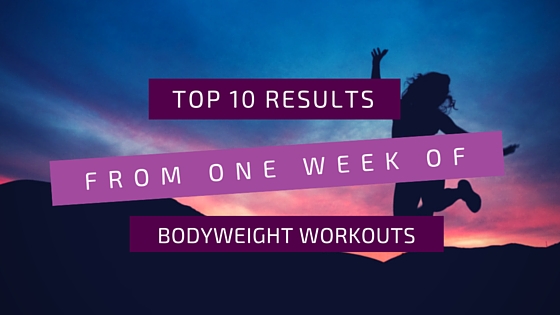
I’ve never really been a bodyweight workout kind of person. Walking, aerobics, (attempting to do) Zumba: these are more my speed. But since I have so little time to exercise these days, I needed to find a way to fit an intense workout into a short amount of time–thirty minutes or less.
My husband talked me into downloading an app called FitStar Personal Trainer, which he’d been following for a couple of weeks. After taking an initial fitness test and inputting the usual information like height, weight, age, and sex, the app personalizes workouts tailored to your fitness level. Each workout takes you through a cycle of exercises, and you tell the app how well you did on each one.
I was skeptical, mostly because I am not in shape. I’d always assumed that bodyweight workouts like these were only for people who were already in somewhat decent shape. I was also nervous about the $40 yearly subscription fee, because I didn’t want to pay for something I didn’t end up using.
But something had to give, because my old exercise habits just weren’t working with my schedule anymore. So I did the fitness test, did the free sample workout, and bit the bullet.
I. Love. It. Here are my top 10 results and revelations from only one week of bodyweight workouts.
2. I packed on three pounds, but my clothes also started fitting better.
3. My balance has improved.
4. My energy levels are up.
5. I can go from sitting to standing without having to use my hands to push off.
6. My back doesn’t hurt anymore.
7. My flexibility is increased.
8. I can lift heavier objects with less exertion.
9. My joints ache less.
10. I have finally accepted that taking five minutes to stretch really does make a difference. Gym teachers don’t just make that stuff up.
I can’t wait to see the results I get after a few months on this regimen!
For more information on the FitStar Personal Trainer app, visit their website.
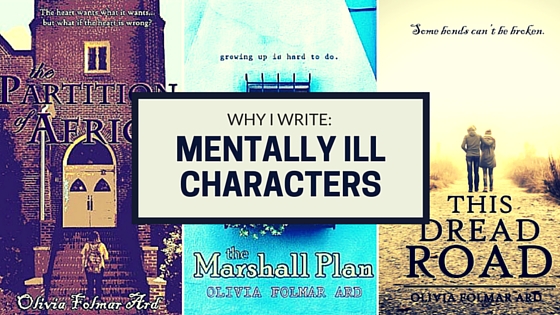
She grabbed her purse and fumbled around it desperately. Her hands were shaking so much she could barely control them, but her fingers finally closed over what she’d been looking for. She withdrew the small plastic bottle, removed the lid with a quick twist, and popped a tiny yellow circular pill into her mouth. She let it rest on her tongue for just a second before she swallowed and closed her eyes in gratitude, like a penitent receiving a communion wafer. The pill left a bitter taste on her tongue, but she didn’t care because she knew the unpleasant flavor heralded the arrival of chemical bliss. Her heart rate slowly but steadily lowered, and she found it easier to breathe.
When she opened her eyes, she found Cameron staring at her, the stubby piece of chalk dangling from his fingers and leaving smudges of powdery residue on his blue jeans. He didn’t look smug anymore. “You’re still dealing with that, then, huh?” he asked. His voice was soft and inviting, drawing her mind back to better times: a finger twirling through her shower-dampened hair, a copy of Herodotus’ Histories spread open across both their laps.
She shook her head. Now was not the time. “Sure am,” she said shortly. What else was there to say? She stuffed her midterm—the midterm she had failed—into her backpack and slung it over her shoulder, not bothering to zip it completely closed.
“Hattie.”
She looked up, and as their eyes met, she heard the question he hadn’t asked out loud. Who helps you with that now? She set her jaw in a firm line as she shot him a look. No one.
—The Partition of Africa
A question I usually field at author events, signings, speaking engagements, and online communication is a simple one: “Why does Hattie have generalized anxiety disorder?”
This is not a bad question, especially considering that disorders like GAD don’t get much screen time, as it were, when it comes to contemporary YA and NA literature. If mental health is addressed, the author usually follows the somewhat familiar paths of depression, addiction, suicide, and self-harm. These are all important facets of mental illness that should we should all read about and try to understand.
But mental illness is more than those more extreme manifestations. It is more than someone being a danger to himself or others. Between the scope of “normal” and “dangerous” lies a whole host of problems that don’t seem to fit neatly into either category. The people who struggle here in this no man’s land often feel confused and alone, strung somewhere between just fine and falling apart.
People like me.
I’ve always been a worrier. Racing thoughts and infinite loops of “what ifs” have been my constant, unwelcome companion since childhood, riding my shoulder like a cartoon devil and whispering imagined calamitous possibilities into my soul. As a young child and teen, and even now sometimes as an adult, I find that the simplest hypotheticals can terrify me into a stupor.
As a child, I had no reason to question whether my mind behaved differently from those around me. Just as I took my nearsightedness in stride until about ten, when I casually asked my mother, “Why do we only see good out of our right eyes? Why are our left eyes so blurry?” I had no idea the way I felt and thought was not normal. So when the people I trusted told me not to worry so much, I tried my best to follow their directives. The guilt and stress of not being able to stop my reckless whirlwind of anxiety through sheer force of will nearly broke me.
My entire life was laced with anxiety. It was woven into the fibers of my spirit, soaked into the essence of my thoughts. I could not sleep. I could not connect with anyone. I could not withstand any measure of conflict without an almost physical pain. I could not stop eating. I could not stop crying. And still, I tried to stop worrying.
On a hot mid-September day in 2013, at the age of 23, I was diagnosed with generalized anxiety disorder. I received the news with mixed emotions.
On the one hand, knowing that doctors had a name for what I’d been experiencing my entire life was rather comforting. My failures in the “just stop worrying” department weren’t an expression of my inadequacy, just proof that I was different from the people around me.
On the other hand, I was mentally ill. This is not information anyone wants to receive, especially not a self-proclaimed control freak like myself. The medical confirmation that no, I could not exert control over my body, was a tough pill to swallow.
Had I been managing better on my own, I probably would have ignored the doctor’s diagnosis and walked away, but my anxiety had grown and developed during my years of attempted suppression. On top of the usual undercurrent of worry which ran constantly in the background of my thoughts, I was now experiencing panic attacks that were completely disrupting my life, which was why I was sitting in a doctor’s office in the first place.
After a near-sleepless night filled with lucid nightmares and an irrational fear of dying, I’d hyperventilated and nearly blacked out on my morning commute a few days prior. Parking on a narrow, litter-covered stretch of grass, surrounded by flashing lights and being hooked up to a portable EKG monitor is an experience I wouldn’t wish on my worst enemy.
It was time to stop trying not to worry, and start trying to understand myself.
Learning the medical side of the monster that controlled my life for years was a long, strange process. It’s strange to know that things like nutrient levels, water intake, exercise levels, and amount of sleep can adjust the way your thoughts tumble around in your mind. It’s strange to know that your body can go through a cycle of anxiety when you’re not even really worried about anything at all.
When I wrote The Partition of Africa, I was struggling to wean myself off my anxiety medication. While I knew there was no shame in treating anxiety with medication, the pills I’d been prescribed just weren’t working for me anymore. They neutralized my panic attacks and helped me sleep, but they were also warping my hormones and messing up my natural rhythms. At times, they caused more anxiety than they cured. I worried about withdrawals, dependency, and possible birth complications if I became pregnant while taking them. It was time to begin the quitting process.
I was desperate for someone to relate to during all this, someone fictional who would understand everything that I was going through. I’d already given Hattie my bookish tendencies, my control freakishness, and my shyness. I decided to give her my illness, as well.
I didn’t stop there. Gavin Reue has anxiety as well, although I don’t explicitly name it. Cameron Wolcott and Molly Marshall both have problems managing their anger. Claire James is a recovering alcoholic, former drug user, and suffers from depression.
At times, I wonder if giving my characters mental health problems was a wise idea. Not everyone struggles with issues like these, and I’m not exactly basing my plots around these illnesses. The stories would function without them, with a bit of tweaking.
But at the end of the day, I’m glad for siphoning this bit of myself into my characters, and for the opportunity to show what it’s like to experience mental illness. I want to show characters who suffer from mental illness and don’t try to harm others or themselves. I want to show that mental illness doesn’t necessarily mean “crazy” or “dangerous.” I want to give hope.
This blog post is not meant to be taken as medical advice. I am not a doctor. If you are exhibiting symptoms of mental illness, please contact your primary care physician or search for a mental health care provider in your area here.
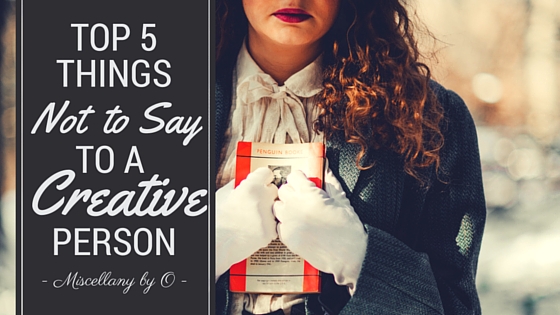
This past Saturday, I had a booth at a local arts festival. This was not my first event as an author–in fact, it’s more like the sixth or seventh–and each time it gets a little easier to shove my trembling, terrified introverted self deep in my brain, take a deep breath, and start initiating conversation with strangers with a smile on my face.
Now that I’ve practiced coming out of my shell enough times, I can actually say it’s fun! I connected with so many old friends, new acquaintances, and eager future readers. I packed up my booth at the end of the day feeling tired, hungry, and rewarded. But as they always do, this event drew my attention to how creative people–artists, musicians, craftsmen, authors, you name it–are often treated in the public. They’re not treated particularly well, if you’re wondering; not overwhelmingly so, at least.
The more I do in-person events like these, the more I grow used to it. I don’t take comments and looks personally like I might have in the past. But it breaks my heart to know that there is a burgeoning artist out there who has worked up the courage to present their work to the public, perhaps for the first time, only to be met with rudeness and disrespect. A handful of ill-thought comments and remarks made by strangers could be enough to sever whatever glimmering, tenuous thread of hope and enthusiasm they have about their art. And that’s just unacceptable.
So today, here’s my list of what not to say to a creative person. Most of these are book related, since that’s obviously what I know, but I know several of my visual artist friends have had similar experiences.
Rest assured, purchasing a book from an author–especially one who self-publishes–is about as local as it gets. It’s great if you eschew the big chains in favor of independent shops, but don’t lose the spirit of what you’re trying to do by focusing on the letter of the law. A local author is a local business, and does not pose a threat to indie shops.
I often meet budding writers, and that’s always a fantastic experience! It’s great to meet a brother or sister in ink, to paraphrase my friend Lissa Bryan’s expression. But when someone has a booth obviously dedicated to selling their works, it’s very rude to completely ignore their books and ask them for free advice on writing and publishing. They’re in selling mode, and odds are they are not equipped to become your pro bono writing coach at a drop of a hat. Publishing a book is no picnic, no matter which route you take, and you can’t expect someone to give you all the answers in three easy steps. Try to establish a connection instead. Read the back cover of the books, make a few polite comments, and if you think they might be able to help you, ask if it would be all right if you sent them an email later, at a more appropriate time. They will most likely say yes.
Again, please remember that the author you are talking to is just that: an author. They are most likely not also an agent, an editor, the head of a publishing house, or anyone who could help you get a book contract. Even if they weren’t, a signing event specifically for their books is not the time. They are trying to connect with potential readers and don’t have resources on hand to help you at the moment. Ask for their email address and try your questions later.
Maybe this isn’t always a rude question, but when the copy of the book they’re holding is about a girl entering a forbidden affair with her professor, it’s kind of inappropriate.
…Sigh.
I don’t have a problem with eBooks. In fact, due to my busy schedule, I read almost exclusively eBooks these days, because it allows me to read in quick 2-3 minute bursts between classes, on lunch breaks, during unexpected traffic jams, etc. But what I do hate is how they have desensitized the reader when it comes to pricing.
Books don’t pop into existence free of charge. For a decent self-published book, assume that at least $1,000 has gone into cover design, interior formatting, editing, proofreading, and marketing. For a book published through an indie house or one of the Big 5, multiply that number by a lot. And that’s nothing compared to the hours and hours of drafting, revising, editing, polishing, and last minute reading that goes into producing a manuscript worthy of the public.
Now factor in that for a Kindle book costing less than $2.99, royalties are only 30%. That means that a self-published author, who doesn’t have to split royalties with anyone, receive a whopping $0.30 for an eBook that costs $0.99. Authors who have publishers to split the royalties with get even less than that.
I understand money is tight sometimes. I get that eBooks are sometimes way, way overpriced–I’ve seen some that are the same price as the print book, and that’s a little extreme.
But if you want to buy a book and support an author, I really urge you to consider paying more than $2 every once and a while. There are some great free and $0.99 books out there, and it’s always nice to find a bargain, but please don’t expect everyone to be able to afford to give their work away for $0.30–or free.
I’m a little too late to formally participate in the Blog A-Z event, but after reading some of my friends post I decided I really liked the idea! There’s no way I’ll finish these out by the end of April, but I think I’ll do them at my own pace all the same.
I see them all the time. You see them, too, I’m sure. They’re everywhere, these lists of advice handed down from invisible so-called experts with no room for nuance. You must not marry young, you must only breastfeed your babies, you must only make these moves in your career . . . and here are the reasons why.
I’ve made plenty a numbered list during my time as a blogger, and I don’t think the format is a bad idea, but I cringe when a piece like this moves from suggestion to decree. The writers of such lists seems to assume that everyone in the world has the same ambitions, desires, dreams, goals, and situations.
Perhaps this evolves from our desire to have one size fits all solutions to our most common problems. I can understand that. It’s a nice thought, isn’t it? But unfortunately, this approach often ends up working just as well as those “one size fits all” shirts no one ever buys, because when it comes to most things, it just isn’t possible.
So here is my advice to you, dear readers:
Etcetera, etcetera.
I can’t make your decisions for you, and neither can anyone else. Listen to the experiences of others, evaluate your own situation, and figure out what works for you. Ignore the rest. Life is too short to let other people try to control your major life decisions.
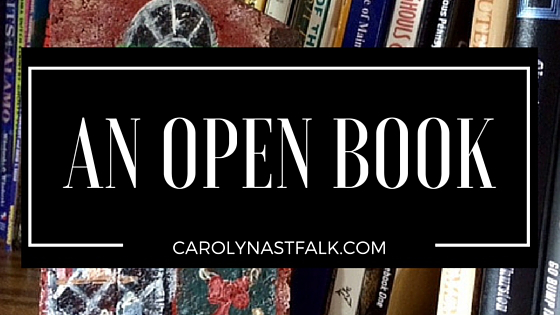
Thanks to Carolyn Astfalk for starting off the #OpenBook link up this month. (Visit her original post here.) Now, let’s get started!
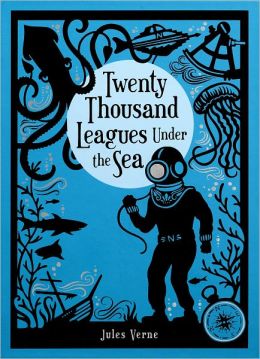
My husband is still reading Twenty Thousand Leagues Under the Sea in the little free time he has. As far as I can tell, he’s enjoying it! I’ve never read any Jules Verne, which I should probably change sooner rather than later. This particular selection doesn’t sound like it would be my personal cup of tea, but whatever works!
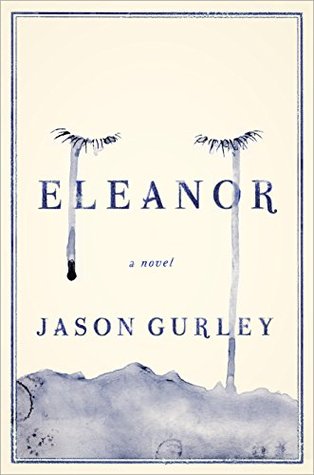
After giving up on Helen Simonson’s The Summer Before the War yesterday, I picked up Eleanor by Jason Gurley. I’ve heard a lot about this book–a lot of critical acclaim, not just buzz on the book blogger circuit–and I was able to get a copy on NetGalley, so I’m going to give it a try. At 11% I’m not quite sure I understand the plot fully enough yet to attempt an explanation, but I’m enjoying it so far. The writing is beautiful, and from what I’ve heard there are elements of magical realism to come. I love magical realism! And I haven’t experienced it in quite a while. I’m excited.
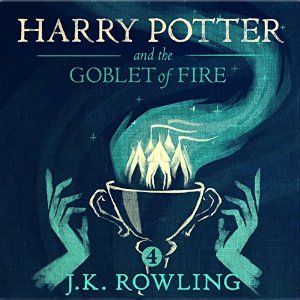
I am also revisiting the Harry Potter books via audio. I’m currently on Harry Potter and the Goblet of Fire, which is my favorite in the series. This is the last book in which Harry can really be considered innocent, in my mind. Hereafter, he’s an adult in an adolescent body, and the plot grows ever darker. This is only the second “reading” I’ve done with the series, as I wasn’t formally introduced to the wizarding world until 2014, and I’m loving the opportunity to explore the intricacy of J.K. Rowling’s planning. I was aware of it beforehand, obviously, as it’s been the source of many an academic paper and literary discussion, and I noticed a lot of the foreshadowing as I made my way through the books the first time, but it’s interesting to see how even the tiniest details all point toward the end. If you haven’t listened to the audiobooks, you’re missing out on a treat. Jim Dale’s narration voice is a treasure.
I’m going to spend this month (and the next, and probably the next) slowly whittling away at my entirely too long NetGalley queue. What I hope to read in April:
The Dressmaker’s War by Mary Chamberlain
A Girl’s Guide to Moving On by Debbie Macomber
Baker’s Magic by Diane Zahler
The Infinite Air by Fiona Kidman
13 Ways of Looking at a Fat Girl by Mona Awad
Regrets Only by M.J. Pullen
Dear Thing by Julie Cohen
I doubt I’ll finish all these, especially since there are only four more weeks left in the semester and I have essays and papers to write, but a girl can dream, can’t she?
What are you reading?
Would you like to participate in An Open book and share what you are reading?
The rules are simple:
1. Include a link back to Carolyn Astfalk’s blog somewhere in your post. (Better yet, link to the week’s post.)
2. Link up your post.
3. Use the hashtag #OpenBook on social media.
4. Try to visit some of the other bloggers’ sites and see what they are reading. Let’s build a community and expand our reading horizons.
Add your link by clicking the #OpenBook image below.
#OpenBook is a monthly link-up each first Wednesday of the month. Check out the rules here.
You can sign up for an Open Book reminder email, which goes out one week before the link-up.